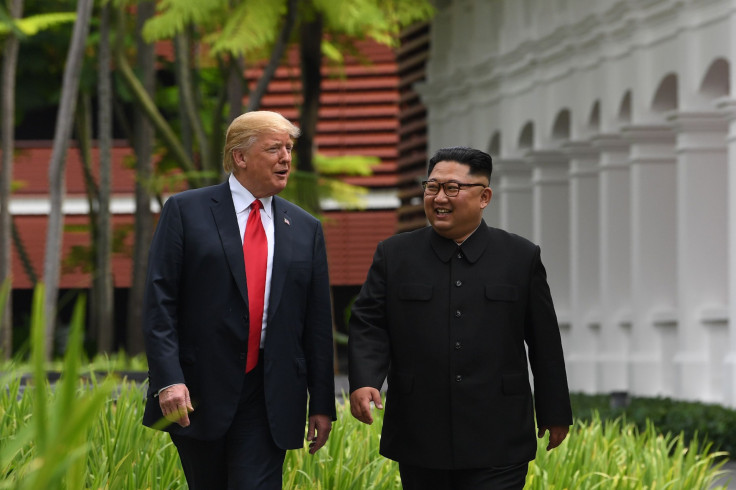North Korea Calls US Seizure Of Coal Ship ‘Daylight Robbery,’ Demands Return

North Korea branded the seizure of one of its cargo ships by the United States a “daylight robbery,” with the former’s foreign ministry demanding Tuesday the immediate return of the vessel.
“This act is an extension of the U.S.-style calculation of trying to hold us in submission with its ‘maximum pressure’ and is a total denial of the fundamental spirit of the June 12 DPRK [Democratic People’s Republic of Korea]-U.S. joint statement,” an unnamed ministry spokesman said, as reported by Korean Central News Agency (KCNA).
The ministry added: “The UN [United Nations] Security Council resolutions the United States mentioned as one of the reasons for robbing our trade vessel equate to a violent infringement of the sovereignty of our country and we have been entirely rejecting them. The United States should carefully consider what kind of consequences their daylight robbery could bring to the political situation and should send back our vessel without hesitation.”
The Department of Justice’s announcement that the North Korean vessel, named “Wise Honest,” was being impounded to American Samoa, after being accused of illicit coal shipments in violation of sanctions, came Thursday, hours after reports of Pyongyang test-firing two short-range missiles.
The 17,061-ton vessel, which was initially detained by Indonesia in April 2018, was reportedly one of North Korea’s largest bulk carriers used to deliver heavy machinery to the country. According to Geoffrey Berman, attorney for the southern district of New York, it was the first time that a North Korean cargo ship was seized for violating international sanctions.
Following the missile test, President Donald Trump told reporters at the White House his administration was keeping a close eye on North Korea, adding that while Pyongyang wanted to negotiate with the U.S., he was not sure whether the former was ready for it.
“We’re looking at it very seriously right now. They were smaller missiles, they were short-range missiles,” Trump said. “Nobody’s happy about it but we’re taking a good look and we’ll see. The relationship continues ... I know they want to negotiate, they’re talking about negotiating. But I don’t think they’re ready to negotiate.”
Meanwhile, amid stalled nuclear talks with the U.S., North Korean leader Kim Jong Un ordered his country's military to boost its strike capability, a day after carrying out the short-range missile testing.
Kim “stressed the need to further increase the capability of the defense units in the forefront area and on the western front to carry out combat tasks and keep full combat posture to cope with any emergency,” KCNA reported Friday, adding, "genuine peace and security of the country are guaranteed only by the strong physical force capable of defending its sovereignty.”
Although North Korea halted its missile and nuclear testing in the weeks leading up to Trump-Kim’s second summit in Hanoi, Vietnam, in February, as a show of good faith and amid a diplomatic thaw between Pyongyang and Seoul, the scenario changed when POTUS walked away from the last meeting without signing an agreement with the North.
Explaining why the second summit between the two world leaders was cut short, Washington later claimed Kim had insisted on the complete removal of all sanctions on North Korea, which the U.S. did not agree to. Meanwhile, Pyongyang rejected the reasoning, stressing that it had only asked for a partial lifting of the restrictions.
© Copyright IBTimes 2024. All rights reserved.






















